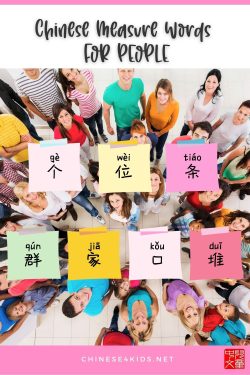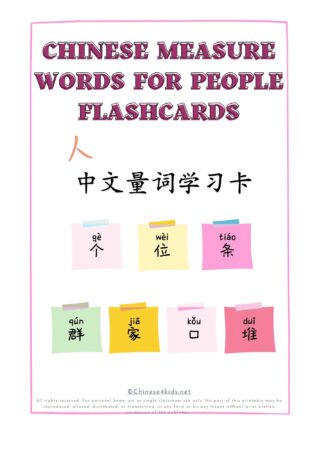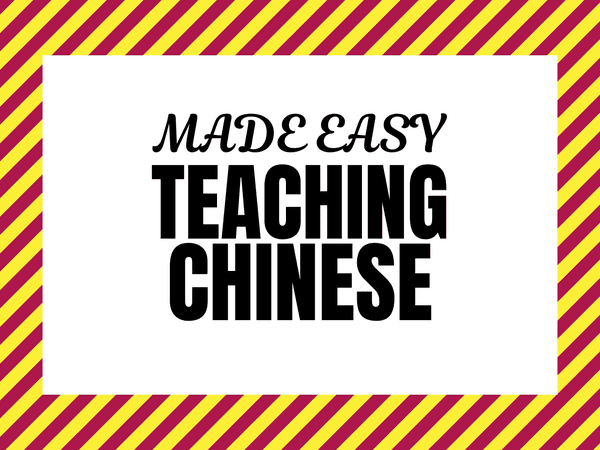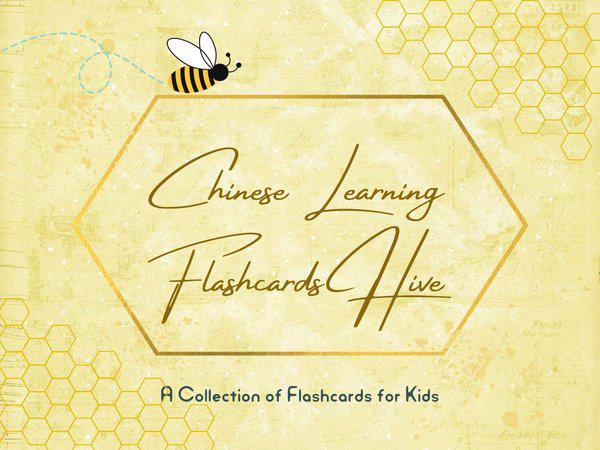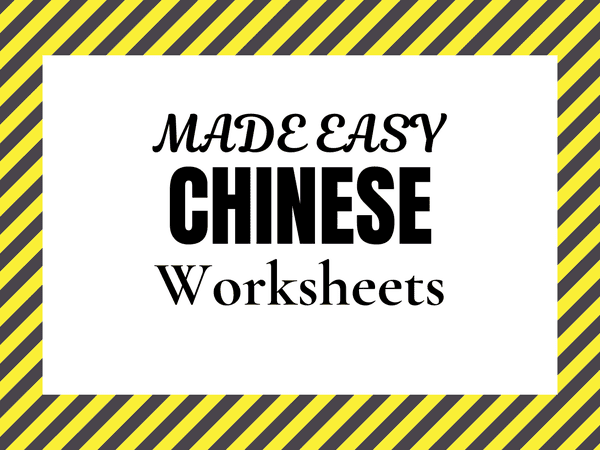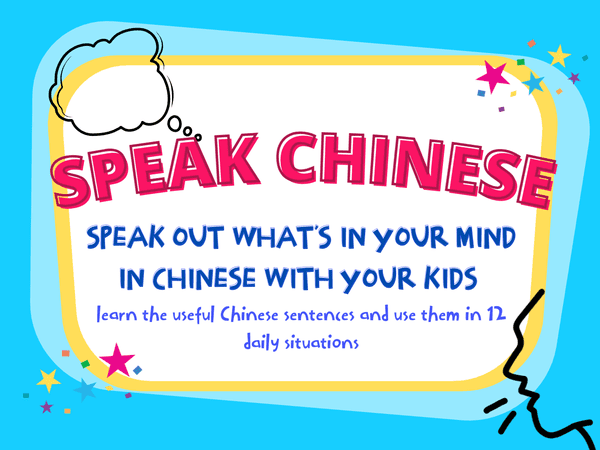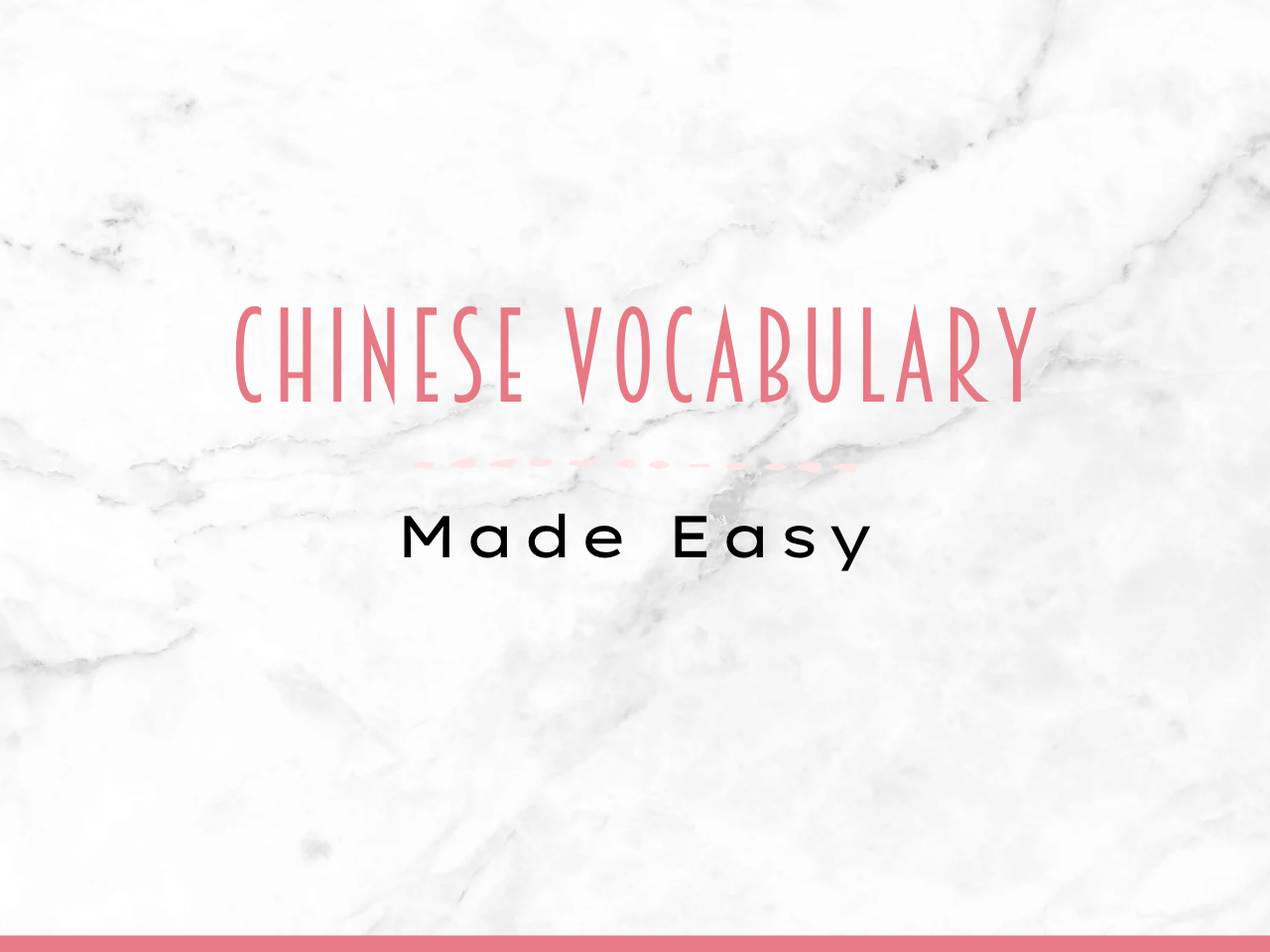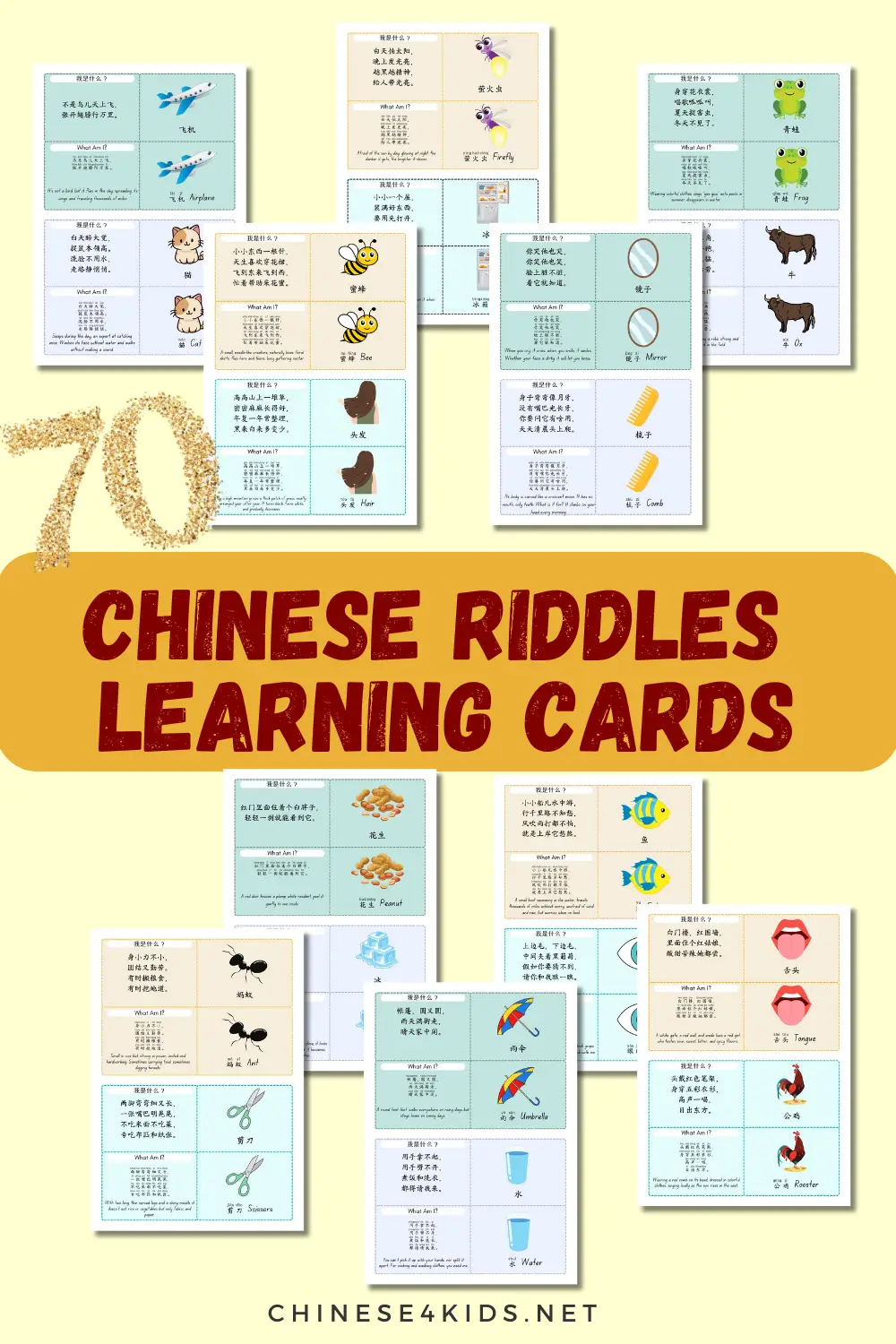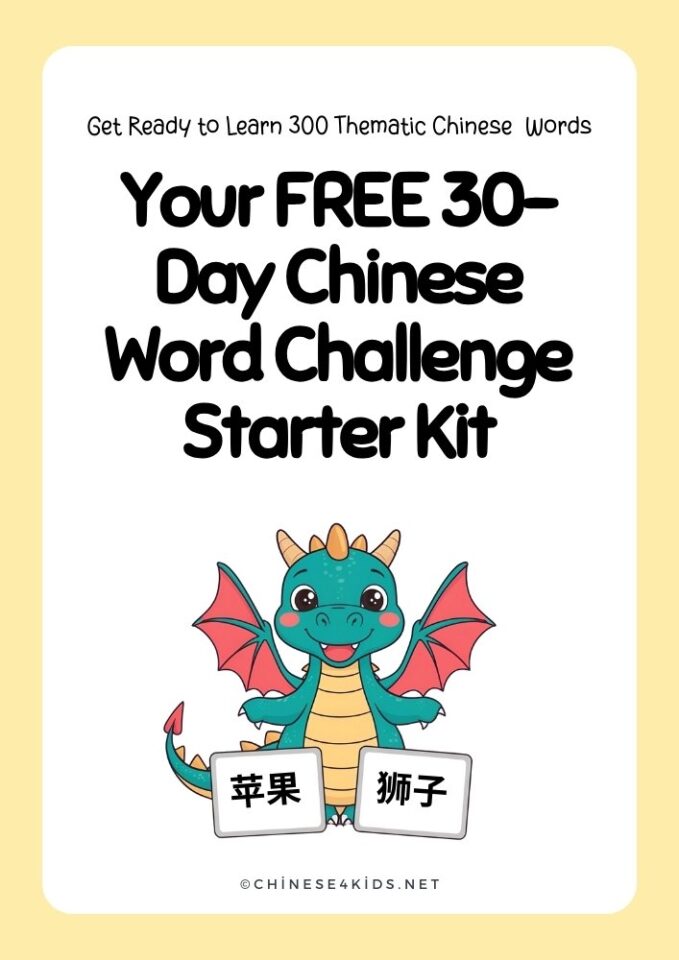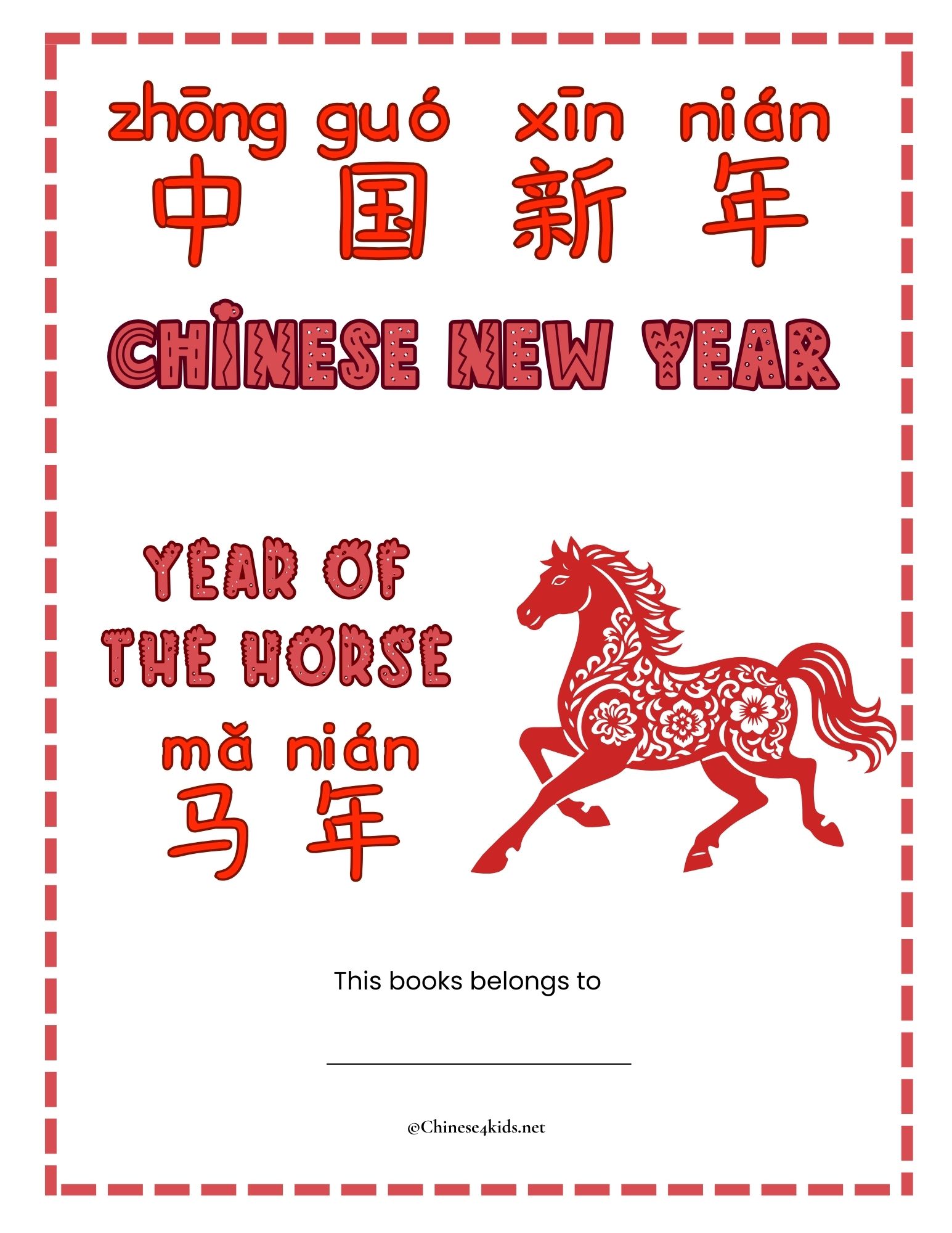
Home » Chinese Grammar Learning for Kids » Exploring Chinese Measure Words for People: An In-Depth Guide
Exploring Chinese Measure Words for People: An In-Depth Guide

Chinese is a rich and diverse language, known for its intricate system of measure words or classifiers. These classifiers play a crucial role in expressing quantity and are particularly essential when counting people. In this article, we’ll delve into several Chinese measure words for people, each with its unique nuances and applications.
Chinese Measure Words for People
个 (gè)
个 is one of the most versatile measure words in Chinese, commonly used when the specific measure word is unknown or when a particular one doesn’t apply.
For example,
一个大人 (yī gè rén) – one adult
两个学生 (liǎng gè xuéshēng) – two students
一个宝宝(yīgè bǎobǎo) – one baby
一个女孩(yīgè nǚhái) – a girl
一个朋友(yīgè péngyǒu) – a friend
位 (wèi)
位 is often used to show respect or politeness when referring to individuals in a formal or hierarchical context.
For example,
一位老师 (yī wèi lǎoshī) – one teacher
三位代表(sān wèi dàibiǎo) – three representatives
一位客人(yī wèi kèrén) – a guest
一位长官(yī wèi cháng guān) – one officer
一位老人(yī wèi lǎorén) – one old man
条 (tiáo)
条 is generally used for things that are long, narrow, or thread-like. 条 is also used metaphorically for individuals in certain contexts. For instance, it can be used when referring to a heroic figure.
For example,
一条好汉 (yī tiáo hǎo hàn) – a heroic figure, highlighting the individual’s courage or exceptional qualities.
群 (qún)
群 is used to describe a group or a crowd of people, indicating a relatively large and uncountable number.
For example,
一群学生 (yī qún xuéshēng) – a group of students
这群人 (zhè qún rén) – this group of people
一群男孩(yīqún nánhái)- a group of boys
家 (jiā)
家 is commonly used when counting families or households. It reflects a sense of unity or collective identity.
六家人 (liù jiā rén) – six families
口 (kǒu)
口 is used to count family members, emphasising the number of mouths or individuals within a household.
For example,
四口人 (sì kǒu rén) – four family members
五口之家 (wǔ kǒu zhī jiā) – a family of five
堆 (duī)
堆 is often used to describe a heap or pile of people, suggesting a more disorganised or casual grouping.
For example,
一堆朋友 (yī duī péngyǒu) – a bunch of friends
三堆孩子 (sān duī háizi) – three piles of kids
Learn Measure Words for People with Montessori Flashcards
We’ve also created Measure Words for People Montessori Flashcards that allows learners to engage in hands-on, interactive learning that emphasizes recognition, matching, and recall.
Want to Know More Measure Words?
- Chinese Measure Words for Body Parts
- Chinese Measure Words for Body Parts Montessori 3-Part Flashcards
- Chinese Measure Words for Animals That Kids Need to Know
- Chinese Measure Words for Transportation Montessori 3-Part Flashcards
- Bike, Bus, Car… Transports in Chinese
- Mastering Chinese Measure Words for Clothing: From Shirts to Scarves and Everything in Between
- Chinese Measure Words for Clothes Montessori 3-Part Flashcards
- 6 Essential Measure Words for Transportation Vehicles in Chinese
- 14 Chinese Measure Words for Food
- Chinese Measure Words for Food Montessori 3-Part Flashcards
- Chinese Measure Words for Tableware
- Chinese Measure Words for Tableware Montessori 3-Part Flashcards
- Chinese Measure Words for Common Household Items
- Chinese Measure Words for Household Items Montessori 3-Part Flashcards
- Chinese Measure Words for Buildings
- Chinese Measure Words for Buildings Montessori 3-Part Flashcard
- Chinese Measure Words for Geography Astronomy Climate
- Chinese Measure Words for Geography Astronomy Climate Montessori 3-Part Flashcard
Understanding Chinese measure words for people adds depth to language proficiency. Each measure word carries subtle connotations and usage patterns, allowing speakers to express not just quantity but also cultural nuances. Embrace the richness of Chinese linguistics by incorporating these measure words into your daily conversations, and watch as your language skills flourish with precision and cultural sensitivity. Happy learning!
You May Also Be Interested:
- Chinese4kids Membership – a portal for busy Chinese teachers and parents
- Chinese learning flashcards Hive – a flashcards library that with regular additions of new quality Chinese learning flashcards
- Chinese learning worksheets collection – Also a part of Chinese4kids membership, this collection is for teachers and parents who want to have access to engaging worksheets and activity sheets created for kids learning Mandarin Chinese as an additional language
- Speak Chinese with Kids Course
- Chinese Vocabulary Made Easy Course
Recent Posts
Join Our Membership
Enroll to A Course
Buy An eBOOK
Our Posts
